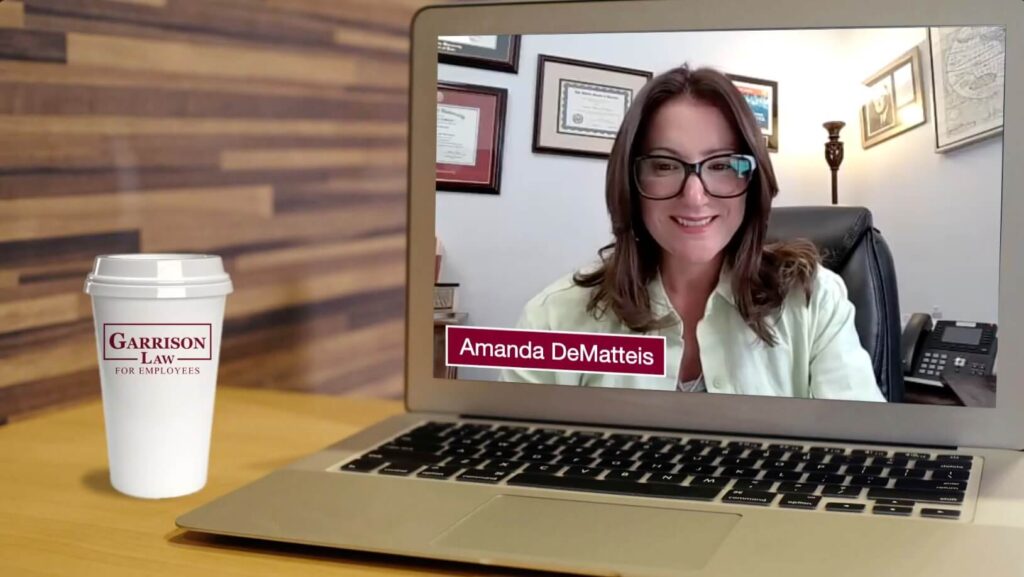Oct 4 2023
Summary: In 303 Creative v. Elenis, the U.S. Supreme Court held that a business owner couldn’t be compelled to create custom wedding websites for same sex couples if it conflicted with her beliefs, citing the First Amendment. While the ruling focused on expressive businesses, it raises broader questions regarding conscience-based refusals of work. First Amendment protections usually apply only to government actions, but Connecticut’s unique law, §31-51q, extends free speech rights to private-sector employees. These rights may support workplace objections so long as they do not significantly disrupt job duties or relationships.
TRANSCRIPT
Amanda DeMatteis: Hi, Josh.
Josh Goodbaum: Hi, Amanda. What are we talking about today?
DeMatteis: I thought we’d talk about a U.S. Supreme Court decision that came down in the summer of 2023. And this was about a business owner’s relationship with its customers. The Supreme Court answered a question for us: what if a business owner does not want to service a particular set of customers? Tell us what the Supreme Court said about that, and then let’s talk a little bit about how that might relate to employment law going forward.
Goodbaum: The case is called 303 Creative v. Elenis, and it’s a bit of a rerun of the wedding cake baker case from a few years ago [Masterpiece Cakeshop v. Colorado]. So, here we’ve got a woman, Lorie Smith, who runs a company called 303 Creative that creates custom websites. She wants to get in the business of creating custom wedding websites, but she’s afraid that if she does so, she’ll be compelled by Colorado to violate her core beliefs, which is that same-sex couples shouldn’t be married.
Colorado has a public accommodations law that prohibits any establishment that serves the general public from discriminating on the basis of sexual orientation, among other categories. And Lorie Smith says, “The First Amendment – in particular, the Free Speech Clause of the First Amendment – prohibits the state from punishing me for refusing to create expressive content that does not accord with my conscience.”
The U.S. Supreme Court, in a 6-3 decision, says, “We agree with you.” The reason is that the state cannot force an individual to speak in ways that align with the state’s views but defy the individual’s conscience about a matter of major significance. In other words, in at least certain situations, the Constitution’s Free Speech Clause gives businesses and individuals a right to discriminate against certain consumers.
The narrowest reading of this case is that it’s limited to the kind of core expressive activity that the Court is describing. So, artists, poets, writers, filmmakers – they can’t be forced to make art for anybody. But more mainstream businesses – wedding venues, caterers – they can still be punished for discriminating because they’re not engaged in expressive activity.
A potentially broader reading of the case, though, is that the First Amendment doesn’t allow for punishment at all for discrimination where the discrimination is based on the core beliefs of the person doing the discriminating, and that might extend to speech or it might extend to other First Amendment protections such as freedom of association.
DeMatteis: So, the Supreme Court has spoken relative to public accommodations. Two questions for you: (1) How might that impact employment law? And (2) in Connecticut, do we have any different laws that might protect us in ways that differ from those in Colorado?
Goodbaum: Yeah, both good questions.
So, do employees have rights under 303 Creative and not just business owners? It’s not hard to imagine a hypothetical where that might come up. Imagine a pharmacist who works for, say, CVS or Walgreens who as a matter of conscience does not want to dispense certain medications to same-sex couples or interracial couples because the pharmacist doesn’t approve of those marriages. Well, that could be a core belief about a matter of major significance. Does the employee have the same rights as Lorie Smith, the business owner of 303 Creative? Well, we don’t really know yet, but it’s not impossible to imagine that they do.
In most states, though, the First Amendment doesn’t apply to CVS or Walgreens because the First Amendment only applies to the government. So, the question is limited really to government employees.
But that’s not true in Connecticut. In Connecticut, we have a peculiar – maybe even unique – statute called 31-51q, which says that all employers, public and private, are prohibited from retaliating against their employees on the basis of those employees’ exercise of certain constitutional rights, including the right to free speech, such as political speech or speech about a matter of serious public concern.
Now, employers in Connecticut do have a defense. They can discipline or discharge an employee for engaging in certain speech if that speech substantially or materially interferes with the employee’s bona fide job performance or the working relationship between the employee and the employer. But that’s going to be a very fact-specific inquiry, one that’s likely only going to be resolvable at trial.
So, one thing that 303 Creative might mean is that we’re going to see a lot of employees asserting their rights in this regard – asserting their rights to conscience and their right to say what they will and will not do at work – and we might see employers then having to invoke the affirmative defense and potentially prove that.
As you can see, though, just from this brief discussion, there’s a lot of uncertainty here. 303 Creative opens up a number of questions around the country but in particular in Connecticut because 31-51q brings the constitutional issue not just to the government as an employer, but to every employer in Connecticut.
DeMatteis: It’s going to be an interesting one to watch. Thank you so much for explaining it so thoroughly, and we’ll see you next time.
Posted by Garrison, Levin-Epstein, Fitzgerald & Pirrotti, P.C. in Commentary
Tagged Amanda DeMatteis, Joshua Goodbaum









